New Nuclear Imaginaries
Speakers
Matthew Bunn
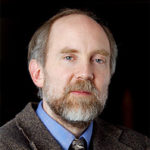
Matthew Bunn is a Professor of Practice at the Harvard Kennedy School. His research interests include nuclear theft and terrorism; nuclear proliferation and measures to control it; the future of nuclear energy and its fuel cycle; and innovation in energy technologies. Before coming to Harvard, Bunn served as an adviser to the White House Office of Science and Technology Policy, as a study director at the National Academy of Sciences, and as editor of Arms Control Today. He is the author or co-author of more than 20 books or major technical reports (most recently Insider Threats), and over a hundred articles in publications ranging from Science to The Washington Post.
Carol Cohn
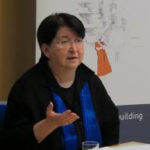
Dr. Carol Cohn is the founding director of the Consortium on Gender, Security and Human Rights, and a leader in the scholarly community addressing issues of gender in global politics, armed conflict and security. Dr. Cohn’s research and writing has focused on gender and security issues ranging from work on the discourse of civilian nuclear defense intellectuals and U.S. national security elites to gender integration issues in the US military, feminist approaches to thinking about weapons of mass destruction, the gender dimensions of contemporary armed conflicts, the concept of “vulnerability” in security and humanitarian discourse, and gender mainstreaming in international peace and security institutions, including the passage of UN Security Council Resolutions on women, peace and security and the on-going efforts to ensure its implementation at the international, national, and grassroots levels.
Michael Dennis
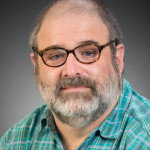
Michael A. Dennis is an assistant professor in the Strategy & Policy Department at the Naval War College in Newport, Rhode Island. After receiving his PhD in the history of science and technology from Johns Hopkins he taught in Cornell University’s Department of Science and Technology Studies. He subsequently served as an adjunct lecturer in Georgetown University’s Security Studies Program as well as other institutions in the Washington, DC area. He writes on the production of technical knowledge in the Cold War American State and is still writing his long overdue book, A change of state: technical practice, political culture and the making of Cold War America.
Lynn Eden
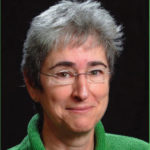 Lynn Eden is a Senior Research Scholar (Emeritus), at the Center for International Security & Cooperation in the Freeman Spogli Institute for International Studies at Stanford University. She has written on U.S politics, nuclear arms control, including deep reductions, and on U.S. foreign and military policy. Lynn’s first book, Crisis in Watertown, written when she was an undergraduate (University of Michigan Press, 1973), was a finalist for a National Book Award. Her book Whole World on Fire: Organizations, Knowledge, and Nuclear Weapons Devastation (Cornell University Press, 2004) won the American Sociological Association’s 2004 Robert K. Merton award for best book in science and technology studies. Using historical documents and personal interviews, she is currently writing End of the World, on how organizational routines, narratives of deterrence, and jokes and humor make it possible for highly ethical U.S. military officers to plan nuclear war. Lynn Eden is a Senior Research Scholar (Emeritus), at the Center for International Security & Cooperation in the Freeman Spogli Institute for International Studies at Stanford University. She has written on U.S politics, nuclear arms control, including deep reductions, and on U.S. foreign and military policy. Lynn’s first book, Crisis in Watertown, written when she was an undergraduate (University of Michigan Press, 1973), was a finalist for a National Book Award. Her book Whole World on Fire: Organizations, Knowledge, and Nuclear Weapons Devastation (Cornell University Press, 2004) won the American Sociological Association’s 2004 Robert K. Merton award for best book in science and technology studies. Using historical documents and personal interviews, she is currently writing End of the World, on how organizational routines, narratives of deterrence, and jokes and humor make it possible for highly ethical U.S. military officers to plan nuclear war.
Samuel Weiss Evans
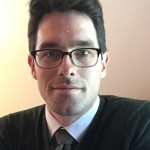
Sam Weiss Evans is a Visiting Research Fellow with the Program for Science, Technology, and Society at the Harvard Kennedy School and a Research Affiliate at the Program on Emerging Technologies at MIT. Sam is currently working on a book on the construction and governance of security concerns in emerging technology, and continuing engagement work with the synthetic biology community, particularly in relation to work being done on gene drive systems and proposals for their development and use. Sam’s work focuses on how areas of science and technology are or are not considered to be security concerns for states. This involves analyzing the processes whereby states become concerned and act to alleviate those concerns, and also analyzing who has a say in these processes. At the heart of this work is the way that areas of science and technology are coproduced with the social orders around the concept of security.
Rod Ewing
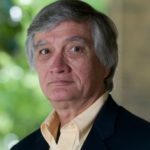 Rod Ewing is the Frank Stanton Professor in Nuclear Security at the Center for International Security & Cooperation in the Freeman Spogli Institute for International Studies and a Professor in the Department of Geological Sciences at Stanford University. His research focuses on the back-end of the nuclear fuel cycle, mainly nuclear materials and the geochemistry of radionuclides with application to permanent geologic disposal. He has written extensively on issues related to nuclear waste management and is a co-editor of Radioactive Waste Forms for the Future (1988) and Uncertainty Underground – Yucca Mountain and the Nation’s High-Level Nuclear Waste (2006). He received the Lomonosov Medal of the Russian Academy of Sciences in 2006. He was appointed by President Obama to chair the Nuclear Waste Technical Review Board from 2012 to 2017. He is a member of the National Academy of Engineering. Rod Ewing is the Frank Stanton Professor in Nuclear Security at the Center for International Security & Cooperation in the Freeman Spogli Institute for International Studies and a Professor in the Department of Geological Sciences at Stanford University. His research focuses on the back-end of the nuclear fuel cycle, mainly nuclear materials and the geochemistry of radionuclides with application to permanent geologic disposal. He has written extensively on issues related to nuclear waste management and is a co-editor of Radioactive Waste Forms for the Future (1988) and Uncertainty Underground – Yucca Mountain and the Nation’s High-Level Nuclear Waste (2006). He received the Lomonosov Medal of the Russian Academy of Sciences in 2006. He was appointed by President Obama to chair the Nuclear Waste Technical Review Board from 2012 to 2017. He is a member of the National Academy of Engineering.
Ulrike Felt
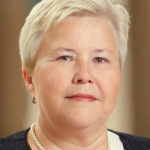
Ulrike Felt is Professor in the Department of Science and Technology Studies and currently dean of the Faculty of Social Sciences at the University of Vienna, Austria. Her research focuses on changing research cultures, as well as the role of time/future in science and society issues. Her work has covered the life sciences, biomedicine, nanotechnologies, nuclear power, and sustainability research. She has been involved in policy advice to the European Commission, to the European Science Foundation, as well as to national policy bodies. (From STS Handbook 2017).
Peter Galison

PETER GALISON is the Joseph Pellegrino University Professor of the History of Science and of Physics at Harvard University; Galison’s work explores the complex interaction between the three principal subcultures of physics–experimentation, instrumentation, and theory. His books include Image and Logic (1997), Einstein’s Clocks, Poincaré’s Maps (2003) and, with L. Daston Objectivity (2007). Galison is also greatly concerned with the impact of technology on the self, and how this influences science, policy, and development. With Robb Moss, he directed “Secrecy” (2008, 81 minutes) and recently completed “Containment” (2015, premiered at Full Frame), about the need to guard radioactive materials for an imagined 10,000-year future.
R. Scott Kemp
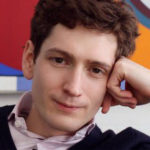
R. Scott Kemp is the Norman C. Rasmussen Associate Professor of Nuclear Science and Engineering at MIT, and director of the MIT Laboratory for Nuclear Security and Policy. His research combines physics, information science, politics, and history to help define policy options for achieving international security under technical constraints. He works primarily on verification of nuclear-warhead dismantlement, the detection of clandestine nuclear programs, and on emerging technologies that complicate international security. He received his Ph.D. from Princeton University in Public and International Affairs, and a bachelor’s in Physics from the University of California, Santa Barbara.
Chris Lawrence
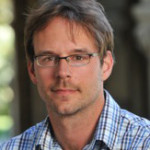 Chris Lawrence is a Visiting Research Fellow with the Program on Science, Technology and Society in Harvard’s Kennedy School of Government. He is generally interested in questions of knowledge as they pertain to arms control and disarmament. While at Harvard, he will examine the making of open-source nuclear intelligence, and the role it plays in the framing of public narratives about weapons of mass destruction. Chris received his PhD in nuclear science and engineering at University of Michigan, where he developed novel neutron-spectroscopy techniques to characterize nuclear warheads for treaty verification. After finishing at Michigan, he was Stanton Nuclear Security Postdoctoral Fellow at the Center of International Security and Cooperation at Stanford University. There, he studied the history of North Korea’s pursuit of light water reactor technology, and the shifting role that pursuit played in its diplomacy. Chris Lawrence is a Visiting Research Fellow with the Program on Science, Technology and Society in Harvard’s Kennedy School of Government. He is generally interested in questions of knowledge as they pertain to arms control and disarmament. While at Harvard, he will examine the making of open-source nuclear intelligence, and the role it plays in the framing of public narratives about weapons of mass destruction. Chris received his PhD in nuclear science and engineering at University of Michigan, where he developed novel neutron-spectroscopy techniques to characterize nuclear warheads for treaty verification. After finishing at Michigan, he was Stanton Nuclear Security Postdoctoral Fellow at the Center of International Security and Cooperation at Stanford University. There, he studied the history of North Korea’s pursuit of light water reactor technology, and the shifting role that pursuit played in its diplomacy.
Richard Lester
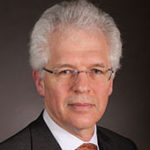
Richard Lester is Japan Steel Industry Professor and Associate Provost at the Massachusetts Institute of Technology, where he oversees the international activities of the Institute. From 2009 to 2015 he served as head of MIT’s Department of Nuclear Science and Engineering, leading the Department successfully through a period of rapid rebuilding and strategic renewal. Professor Lester’s research focuses on innovation strategy and management. He is also widely known for his research on nuclear technology innovation, management and control. Dr. Lester holds an undergraduate degree in chemical engineering from Imperial College and a Ph.D. in nuclear engineering from MIT. He is the author or co-author of eight books, and serves as chair of the National Academies’ Board on Science, Technology, and Economic Policy.
Allison Macfarlane
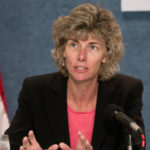 Dr. Allison M. Macfarlane is currently Professor of Science Policy and International Affairs at the George Washington University, Director of the Institute for International Science and Technology Policy and Director of the International Science and Technology Policy Master’s program at the University’s Elliott School of International Affairs. She served as Chairman of the U.S. Nuclear Regulatory Commission from July 2012 through December 2014. Dr. Macfarlane holds a PhD in geology from the Massachusetts Institute of Technology and a BSc degree in geology from the University of Rochester. She has been on the faculty at Georgia Tech and George Mason University. From 2010 to 2012 she served on the Blue Ribbon Commission on America’s Nuclear Future, created by the Obama Administration to develop a national strategy for the nation’s high-level nuclear waste. In 2006, MIT Press published a book she co-edited, Uncertainty Underground: Yucca Mountain and the Nation’s High-Level Nuclear Waste. Dr. Allison M. Macfarlane is currently Professor of Science Policy and International Affairs at the George Washington University, Director of the Institute for International Science and Technology Policy and Director of the International Science and Technology Policy Master’s program at the University’s Elliott School of International Affairs. She served as Chairman of the U.S. Nuclear Regulatory Commission from July 2012 through December 2014. Dr. Macfarlane holds a PhD in geology from the Massachusetts Institute of Technology and a BSc degree in geology from the University of Rochester. She has been on the faculty at Georgia Tech and George Mason University. From 2010 to 2012 she served on the Blue Ribbon Commission on America’s Nuclear Future, created by the Obama Administration to develop a national strategy for the nation’s high-level nuclear waste. In 2006, MIT Press published a book she co-edited, Uncertainty Underground: Yucca Mountain and the Nation’s High-Level Nuclear Waste.
Steven Miller
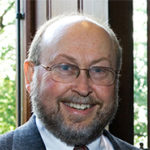
Steven E. Miller is Director of the International Security Program, Editor-in-Chief of the quarterly journal, International Security and also co-editor of the International Security Program’s book series, Belfer Center Studies in International Security (which is published by the MIT Press). Previously, he was Senior Research Fellow at the Stockholm International Peace Research Institute (SIPRI) and taught Defense and Arms Control Studies in the Department of Political Science at the Massachusetts Institute of Technology. Miller is editor or co-editor of more than two dozen books, including, most recently, The Next Great War? The Roots of World War I and the Risk of U.S.-China Conflict.
Jonathon Porritt
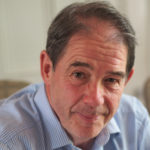 Jonathon Porritt, Co-Founder of Forum for the Future, is an eminent writer, broadcaster and commentator on sustainable development. Established in 1996, Forum for the Future is now the UK’s leading sustainable development charity. The Forum has a growing presence in the United States, India, Hong Kong, Singapore and Malaysia. In addition he is a Non-Executive Director of Willmott Dixon Holdings, a Trustee of Ashden, and a Director of Collectively (an online platform celebrating sustainable innovation). He was formerly Director of Friends of the Earth, co-chair of the Green Party and as Chairman of the UK Sustainable Development Commission until 2009, he spent nine years providing high-level advice to Government Ministers. Jonathon was installed as the Chancellor of Keele University in February 2012. He is also Visiting Professor at Loughborough University and UCL. Recent books are ‘Capitalism As If The World Matters’ (2007) and ‘The World We Made’ (2013) – which seeks to inspire people about the prospects of a sustainable world in 2050. Jonathon received a CBE in January 2000 for services to environmental protection. Jonathon Porritt, Co-Founder of Forum for the Future, is an eminent writer, broadcaster and commentator on sustainable development. Established in 1996, Forum for the Future is now the UK’s leading sustainable development charity. The Forum has a growing presence in the United States, India, Hong Kong, Singapore and Malaysia. In addition he is a Non-Executive Director of Willmott Dixon Holdings, a Trustee of Ashden, and a Director of Collectively (an online platform celebrating sustainable innovation). He was formerly Director of Friends of the Earth, co-chair of the Green Party and as Chairman of the UK Sustainable Development Commission until 2009, he spent nine years providing high-level advice to Government Ministers. Jonathon was installed as the Chancellor of Keele University in February 2012. He is also Visiting Professor at Loughborough University and UCL. Recent books are ‘Capitalism As If The World Matters’ (2007) and ‘The World We Made’ (2013) – which seeks to inspire people about the prospects of a sustainable world in 2050. Jonathon received a CBE in January 2000 for services to environmental protection.
Egle Rindzeviciute
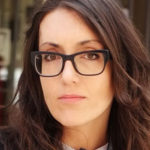
Dr Egle Rindzevičiute holds a PhD in Culture Studies from Linköping University, Sweden, and is a Lecturer in Sociology at Kingston University in London. Dr Rindzevičiute joined Kingston University from the Paris Institute of Political Studies (Sciences Po) in 2015 and in 2016-2019 she is a Visiting Research Fellow at the School of Public Administration, Gothenburg University, Sweden. Dr Rindzevičiute is the author of The Power of Systems: How Policy Sciences Opened Up the Cold War World (Cornell University Press, 2016) and the editor of The Struggle for the Long Term in Transnational Science and Politics: Forging the Future (Routledge, 2015) (with Dr Jenny Andersson). Her current research project focuses on the construction of nuclearity as a national cultural heritage in Soviet and post-Soviet Russia.
Jayita Sarkar
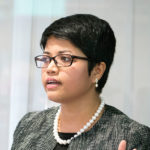
Jayita Sarkar is a Research Fellow with the Security Studies Program at the Massachusetts Institute of Technology. Her expertise is in the history of U.S. foreign policy, nuclear proliferation, export controls, the global Cold War and South Asia. From Fall 2017, she will be an Assistant Professor of International Relations at Boston University’s Frederick S. Pardee School of Global Studies. Her research has been published or is forthcoming in Journal of Strategic Studies, Cold War History, International History Review, and Critique Internationale, among others. Dr. Sarkar is a former Stanton Nuclear Security Fellow at Harvard University’s Belfer Center for Science and International Affairs and holds a doctorate in International History from the Graduate Institute Geneva in Switzerland.
Kyoko Sato
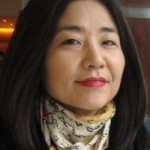 Kyoko Sato is the Associate Director of the Program in Science, Technology, and Society at Stanford University. Her research explores how cultural meanings, politics, and institutional frameworks intersect in the development of sociotechnical systems. She is currently conducting a multi-year study on nuclear governance in Japan and the United States, specifically examining how it evolved in postwar years and what impact the 2011 Fukushima nuclear disaster has had on it in both countries. Her previous work examined the politics of genetically modified food in France, Japan, and the United States, as well as the dynamics of interdisciplinary collaboration. She received her PhD in sociology from Princeton University, MA in journalism from New York University, and BA in English from the University of Tokyo.Born and raised in Tokyo, she worked as a reporter for The Japan Times, an English-language daily in Tokyo, before entering the academia. Kyoko Sato is the Associate Director of the Program in Science, Technology, and Society at Stanford University. Her research explores how cultural meanings, politics, and institutional frameworks intersect in the development of sociotechnical systems. She is currently conducting a multi-year study on nuclear governance in Japan and the United States, specifically examining how it evolved in postwar years and what impact the 2011 Fukushima nuclear disaster has had on it in both countries. Her previous work examined the politics of genetically modified food in France, Japan, and the United States, as well as the dynamics of interdisciplinary collaboration. She received her PhD in sociology from Princeton University, MA in journalism from New York University, and BA in English from the University of Tokyo.Born and raised in Tokyo, she worked as a reporter for The Japan Times, an English-language daily in Tokyo, before entering the academia.
Sonja Schmid
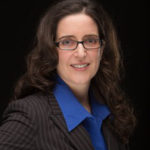
Sonja Schmid is an associate professor in the Department of Science and Technology in Society (STS) at Virginia Tech. Her research interests include social and historical studies of science and technology, technology transfer and international cooperation, nuclear history and energy policy, nonproliferation, and emergency preparedness and response. For her first book, Producing Power: The Pre-Chernobyl History of the Soviet Nuclear Industry (MIT 2015), she studied the organization of the emerging Soviet nuclear industry. She serves as the co-director of Virginia Tech’s STS Graduate Program in Northern Virginia, and is part of Virginia Tech’s Nuclear Science and Engineering Laboratory (NSEL) in Arlington, VA. She earned her Ph.D. in Science & Technology Studies from Cornell, and her M.A. from the University of Vienna, Austria.
Daniel Schrag
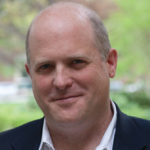 Daniel Schrag is the Sturgis Hooper Professor of Geology, Professor of Environmental Science and Engineering at Harvard University, and Director of the Harvard University Center for the Environment. He also directs the Program on Science, Technology, and Public Policy at the Harvard Kennedy School. Dan’s interests include climate change, energy technology, and energy policy. He has studied climate change over the broadest range of Earth’s history, including how climate change and the chemical evolution of the atmosphere influenced the evolution of life in the past, and what steps might be taken to prepare for impacts of climate change in the future. He helped to develop the hypothesis that the Earth experienced a series of extreme glaciations, called “Snowball Earths,” that may have stimulated a rise in atmospheric oxygen and the proliferation of multicellular animals. He is also interested in how we can use climate events in the geologic past to understand our current climate challenges. Dan has worked on a range of issues in energy technology and policy, including advanced technologies for low-carbon transportation fuel, carbon capture and storage, and risks and opportunities of shale gas. He was named a MacArthur Fellow in 2000. He served on President Obama’s Council of Advisors on Science and Technology (PCAST), contributing to many reports to the President, including energy technology and national energy policy, agricultural preparedness, climate change, and STEM education. Daniel Schrag is the Sturgis Hooper Professor of Geology, Professor of Environmental Science and Engineering at Harvard University, and Director of the Harvard University Center for the Environment. He also directs the Program on Science, Technology, and Public Policy at the Harvard Kennedy School. Dan’s interests include climate change, energy technology, and energy policy. He has studied climate change over the broadest range of Earth’s history, including how climate change and the chemical evolution of the atmosphere influenced the evolution of life in the past, and what steps might be taken to prepare for impacts of climate change in the future. He helped to develop the hypothesis that the Earth experienced a series of extreme glaciations, called “Snowball Earths,” that may have stimulated a rise in atmospheric oxygen and the proliferation of multicellular animals. He is also interested in how we can use climate events in the geologic past to understand our current climate challenges. Dan has worked on a range of issues in energy technology and policy, including advanced technologies for low-carbon transportation fuel, carbon capture and storage, and risks and opportunities of shale gas. He was named a MacArthur Fellow in 2000. He served on President Obama’s Council of Advisors on Science and Technology (PCAST), contributing to many reports to the President, including energy technology and national energy policy, agricultural preparedness, climate change, and STEM education.
Miranda Schreurs
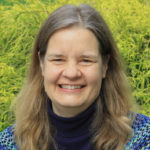
Miranda A. Schreurs (PhD, University of Michigan) is Professor of Environment and Climate Policy at the Bavarian School of Public Policy, Technical University of Munich. Her research focuses on climate change, low carbon energy transitions, and environmental movements in Europe, the United States, and Asia. She is currently Vice Chair of the European Environment and Sustainable Development Advisory Councils. She co-chairs the National Committee to Monitor the Nuclear Waste Management Site Location Search in Germany and was a member of the Ethics Committee for a Secure Energy Future set up by Chancellor Angela Merkel in reaction to the Fukushima nuclear accident.
Rebecca Slayton
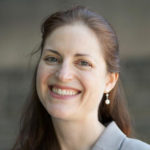
Rebecca Slayton is Assistant Professor, jointly in the Science and Technology Studies Department and the Judith Reppy Institute for Peace and Conflict Studies, both at Cornell. Her research examines the relationships between and among risk, governance, and expertise, with a focus on international security and cooperation since World War II. Her first book, Arguments that Count: Physics, Computing, and Missile Defense, 1949-2012 (MIT Press, 2013), shows how the rise of a new field of expertise in computing reshaped public policies and perceptions about the risks of missile defense, and won the 2015 Computer History Museum Prize. Slayton is currently working on a second book,Shadowing Cybersecurity, which examines the emergence of cybersecurity expertise through the interplay of innovation and repair.
Andy Stirling
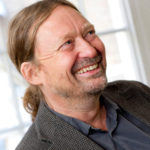 Andy Stirling is a professor in SPRU at Sussex University, a co-director of the ESRC STEPS Centre and a fellow of the UK Academy of Social Science. He is an interdisciplinary researcher, with a background in natural and social science. Focusing on challenges around ‘opening up’ more democratic governance of science, technology and innovation, his research addresses issues like: uncertainty, precaution, scepticism, sustainability, resilience, diversity, transformation and participation. He has served on many EU and UK advisory bodies on issues of energy, environment, emerging technologies and science policy. Andy Stirling is a professor in SPRU at Sussex University, a co-director of the ESRC STEPS Centre and a fellow of the UK Academy of Social Science. He is an interdisciplinary researcher, with a background in natural and social science. Focusing on challenges around ‘opening up’ more democratic governance of science, technology and innovation, his research addresses issues like: uncertainty, precaution, scepticism, sustainability, resilience, diversity, transformation and participation. He has served on many EU and UK advisory bodies on issues of energy, environment, emerging technologies and science policy.
Alex Wellerstein
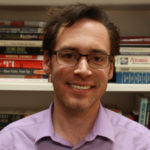
Alex Wellerstein is an Assistant Professor in the Program on Science and Technology Studies at the Stevens Institute of Technology in Hoboken, New Jersey. He received a PhD from the Department of the History of Science at Harvard University in 2010, and a BA in History from the University of California, Berkeley, in 2002. He is currently working to complete his book on the history of nuclear secrecy in the United States, from the Manhattan Project through the War on Terror, under contract with the University of Chicago Press. He is the author of Restricted Data: The Nuclear Secrecy Blog, the creator of the online NUKEMAP nuclear weapons effects simulator, and is an occasional contributor to The New Yorker’s Elements Blog.
|






















